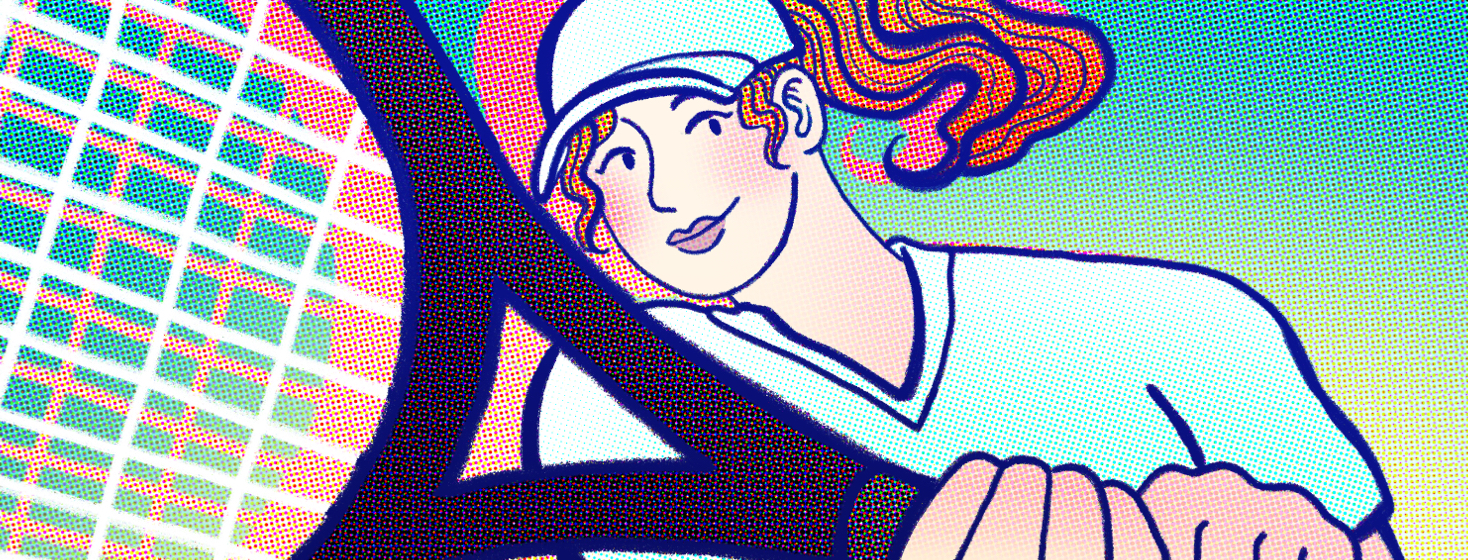How I Got my (Tennis) Game Back
Despite my best efforts to coax my feet into moving and to make a good contact with the ball, today I played some of my worst tennis in years.
Trying to return to normalcy
But the funny thing is that I didn’t care nearly as much as I did when I was equally bad while recovering from my fourth stem cell transplant more than 10 years ago. Back then, I was embarrassed and flustered if I messed up. I worried that nobody would want to play with me anymore. But now I can chalk it up to it being “one of those days.”
Normalcy after blood cancer, or the so-called new normal, can take many forms. For me, top of the list was returning to tennis. (To remind myself that this was possible, I kept a can of tennis balls on my hospital windowsill while preparing for transplant.)
Other items on my normalcy list
My “normalcy” checklist cast a wide net and also included drinking coffee, eating strawberries and inhaling the smell of freshly mowed grass. While immune-compromised, I could have coffee but lost my taste for it; strawberries and freshly mowed grass were to be avoided for a period after transplant due to the risk that they posed to fragile immune systems. The strawberries are on the list because you can’t get them clean enough to rule out bacteria, and it was thought that inhaling around freshly mown grass could lead to a fungal infection.
Wanting to get back to tennis
Getting back to these simple pleasures was sure easier than finding my tennis sea legs. For tennis, it took a little village. My tennis friend Donna said she would hit with me when I was ready. But when was that?
I called her a few times. “I’m ready!” But then I would fill her in on my problem of the week, or she would watch me walk, and she would say to wait just a little bit longer. This routine was similar to the one with my hairdresser. I would stop by and show her my peach fuzz and ask, “Is it time?”
Featured Forum
View all responsesBeginning my return to the game
Finally, the day came. She told me not to run for the ball. That of course is the opposite of what you usually do. We stayed close to the net and played “mini-tennis,” which means you are not using the entire length of the court. I was back! It was a great feeling.
Next I hit with George, one of the pros at our club. He taught me how to serve underhand. I was too weak to serve the regular way.
A challenging process
The matches and practices were not what I had dreamt of.
One practice stands out as an especially miserable evening. About six of us were practicing ground strokes. I repeatedly failed at getting the ball all the way to the person opposite me.
I used the word “failed” just now on purpose because I felt like a failure. I was wasting everyone’s time. Some wouldn’t want to come to the clinic, just because I was there. I don’t know this for sure, but that’s how I felt.
Feeling like a failure
I do know the name of the woman who complained about me at one of our weekly Friday round robins. In this format, you rotate partners three times. The woman told the owner of the club that I slowed things down. She said she disliked playing with me and might skip the event if I came the next time. In case you are wondering, the prize money is ZERO.
Welcome back to second grade! This was not how I pictured my comeback.
So how bad was I? I’m sure I was no Billie Jean King, but I don’t think I was the worst thing since spoiled milk. Still, I took it to heart, in a bad way. I wasn’t a good tennis player. Come to think of it, I was a bad person. I cried.
Determined to deal with my own self-doubt
Then I got to work. If I could fight leukemia, navigating through four stem cell transplants, surely I could deal with some Mean Girls and an even bigger enemy, my own self-doubt.
When teaching me the underhand serve, George had suggested I watch a video of a young tennis player, Michael Chang, serving an underhand felt round the world. He defeated the much older Ivan Lendl at the French Open in 1989 by pulling out a surprise serve.
Rising to meet the moment
It’s a story of creative problem solving, of rising to meet the moment, of figuring things out. I wasn’t going to win the French Open, but I could win in different ways. I worked on my fitness. I worked on my game. I got back to where I was. Maybe I even got a little better. I loosened up. People seem to like to play with me.
Now when I have a bad tennis day, I don’t take it to heart like I did before. I am not happy about it, but I am not distraught either. Most importantly if I have a bad tennis day, this does not mean I am a bad person or player.

Join the conversation